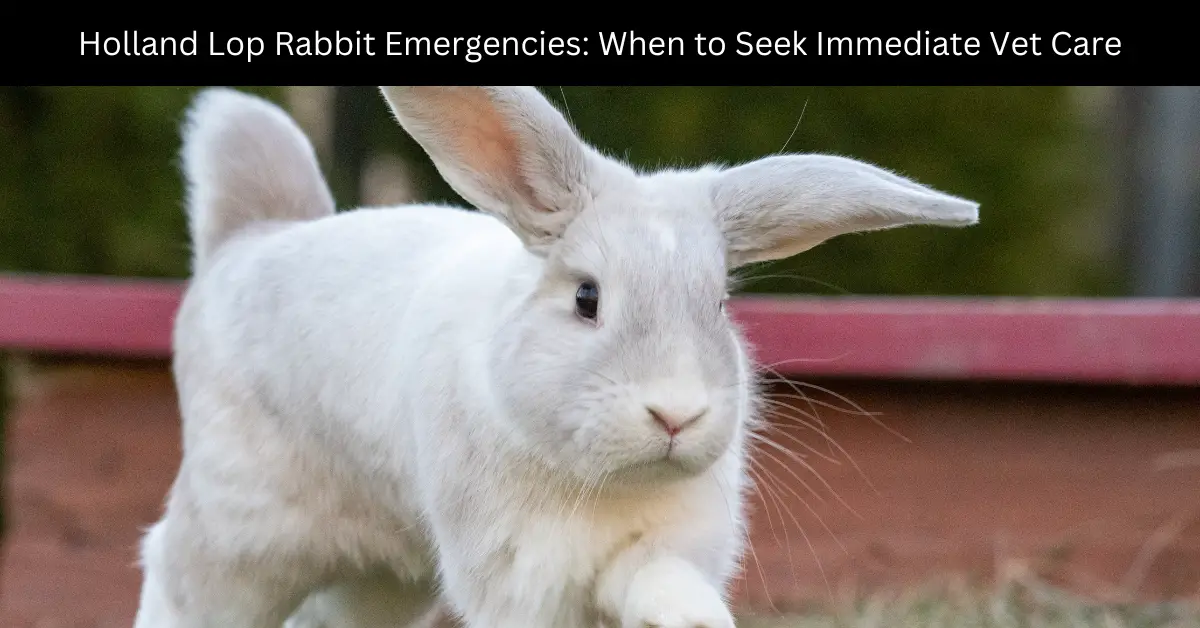As devoted Holland Lop rabbit owners, we understand the joy and challenges that come with caring for these adorable, compact companions.
However, it’s crucial to be prepared for potential emergencies that may arise, as Holland Lop rabbits can be more susceptible to certain health issues due to their unique characteristics.
In this blog article, we’ll explore the most common Holland Lop rabbit emergencies and provide you with the knowledge to recognize when immediate veterinary attention is necessary.
Key Takeaways:
- Holland Lop rabbits are susceptible to various emergencies, including gastrointestinal, respiratory, and skin/fur-related issues.
- Prompt recognition of symptoms and immediate veterinary care are crucial, as Holland Lop rabbit emergencies can quickly become life-threatening.
- Preventative measures, such as maintaining a proper diet, regular grooming, stress management, and routine veterinary check-ups, can help minimize the risk of emergencies.
- Understanding the unique anatomy and physiology of Holland Lop rabbits is essential to identifying and responding to potential health crises.
- Providing first aid, when possible and directed by a veterinarian, can help stabilize the rabbit until professional medical attention is available.
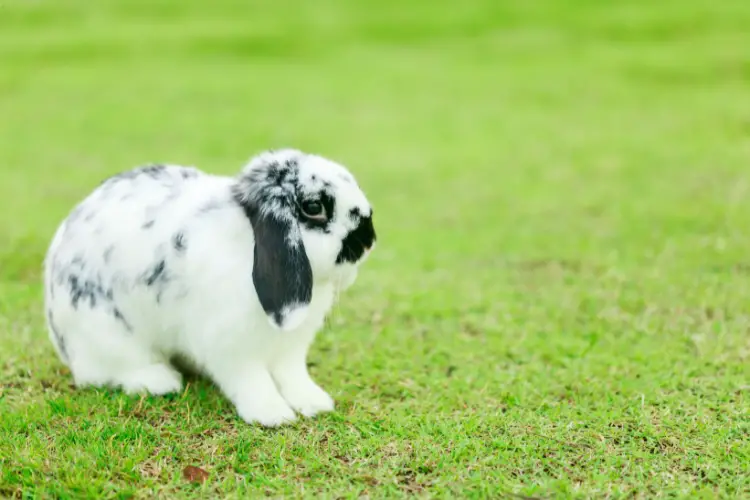
Understanding Holland Lop Rabbit Anatomy and Physiology
Holland Lop rabbits, with their rounded features and compact bodies, have distinct physical traits that require special consideration when it comes to their health and well-being. Let’s dive into the key aspects of Holland Lop rabbit anatomy and physiology that contribute to their unique care requirements.
1. Digestive System
Holland Lop rabbits have a sensitive digestive system that can be easily upset. Their gastrointestinal tract is designed to process a diet high in fiber, and any disruption to this can lead to serious health issues.
2. Respiratory System
Holland Lop rabbits have a delicate respiratory system, and they are particularly susceptible to upper respiratory infections and disorders due to their compact facial features and potential for poor air circulation.
3. Skin and Fur
The Holland Lop’s short, dense fur may seem low-maintenance, but it can also make them more prone to skin irritations, matting, and other fur-related problems.
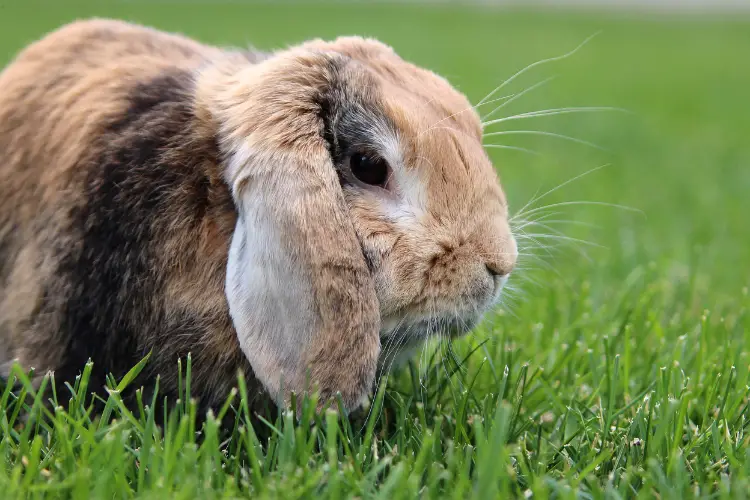
Recognizing Holland Lop Rabbit Emergencies
Knowing when to seek immediate veterinary care for your Holland Lop rabbit is crucial, as these delicate creatures can deteriorate rapidly if left untreated. Here are some of the most common Holland Lop rabbit emergencies and the signs to watch out for:
1. Gastrointestinal Emergencies
- Gastrointestinal stasis (also known as “gut stasis” or “ileus”)
- Symptoms: Decreased or absent fecal pellets, lack of appetite, abdominal discomfort, lethargy
- Intestinal blockages or obstructions
- Symptoms: Lack of appetite, decreased fecal pellets, abdominal pain, vomiting
- Diarrhea or severe dehydration
- Symptoms: Watery or loose stools, lethargy, reduced water intake
2. Respiratory Emergencies
- Upper respiratory infections
- Symptoms: Nasal discharge, labored breathing, lethargy
- Difficulty breathing or labored breathing
- Symptoms: Rapid or shallow breathing, flaring nostrils, open-mouthed breathing
3. Skin and Fur Emergencies
- Severe matting or fur impaction
- Symptoms: Inability to groom, skin irritation, discomfort
- Skin infections or irritations
- Symptoms: Redness, swelling, crusting, itching
- Injuries or wounds related to the fur or skin
- Symptoms: Visible wounds, bleeding, pain
4. Other Emergencies
- Traumatic injuries, such as broken bones or internal bleeding
- Symptoms: Limping, inability to move a limb, shock, lethargy
- Neurological disorders, such as seizures
- Symptoms: Tremors, abnormal movements, unresponsiveness
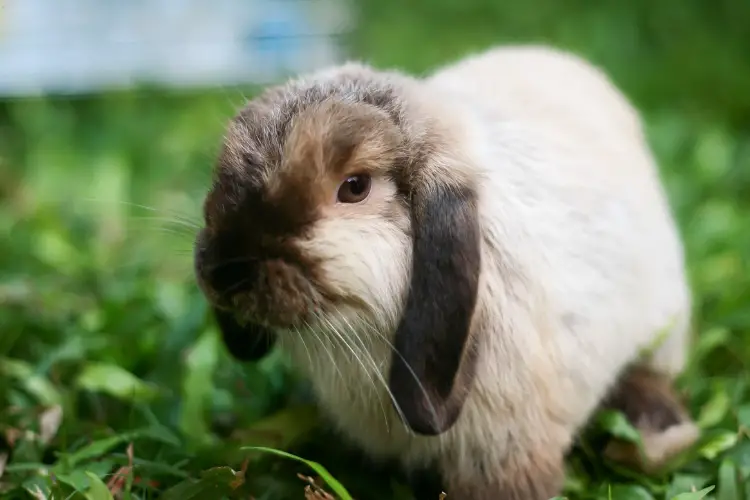
Responding to Holland Lop Rabbit Emergencies
When faced with a Holland Lop rabbit emergency, time is of the essence. Prompt veterinary care can be the difference between life and death. Here’s what you should do when you suspect an emergency:
- Remain Calm: It’s important to stay composed, as your rabbit can sense your anxiety and stress, which may further exacerbate the situation.
- Assess the Situation: Carefully observe your rabbit’s symptoms and behavior, and refer to the information above to help identify the potential emergency.
- Contact Your Veterinarian: Immediately call your veterinarian or the nearest emergency animal hospital. Provide them with a clear and concise description of the situation, and be prepared to transport your rabbit to the clinic promptly.
- Prepare for Transport: If directed to bring your rabbit in, gently place them in a secure, well-ventilated carrier or box lined with a soft, absorbent material. Avoid handling them too much, as this can worsen their condition.
- Provide First Aid (if possible): In some cases, you may be able to provide basic first aid, such as administering fluids or removing matted fur, but only if your veterinarian instructs you to do so. Otherwise, leave the treatment to the professionals.
- Communicate with Your Vet: During the appointment, be prepared to provide any relevant information about your rabbit’s medical history, diet, and recent behavior. This will help your veterinarian make an accurate diagnosis and provide the best possible care.

Preventing Holland Lop Rabbit Emergencies
While Holland Lop rabbit emergencies can be scary, there are steps you can take to minimize the risk and keep your furry friend healthy and safe. Here are some preventative measures to consider:
1. Proper Diet and Nutrition
Maintain a high-fiber diet for your Holland Lop rabbit, with access to fresh hay, clean water, and limited treats. Avoid sudden changes to their diet, as this can disrupt their sensitive digestive system.
2. Regular Grooming
Invest time in regularly grooming your Holland Lop rabbit to prevent matting, skin irritations, and fur impaction. This not only keeps their coat in top condition but also allows you to monitor their overall health.
3. Stress Management
Holland Lop rabbits are sensitive to stress, which can weaken their immune system and make them more susceptible to health issues. Provide a calm, comfortable environment and minimize disruptions to their routine.
4. Veterinary Checkups
Schedule regular check-ups with your Holland Lop rabbit’s veterinarian, even when they appear healthy. This allows for early detection and prevention of potential problems.
By being proactive and understanding the unique needs of Holland Lop rabbits, you can help ensure your beloved companion stays happy, healthy, and safe. Remember, when it comes to Holland Lop rabbit emergencies, swift action, and veterinary care can be the key to a positive outcome.
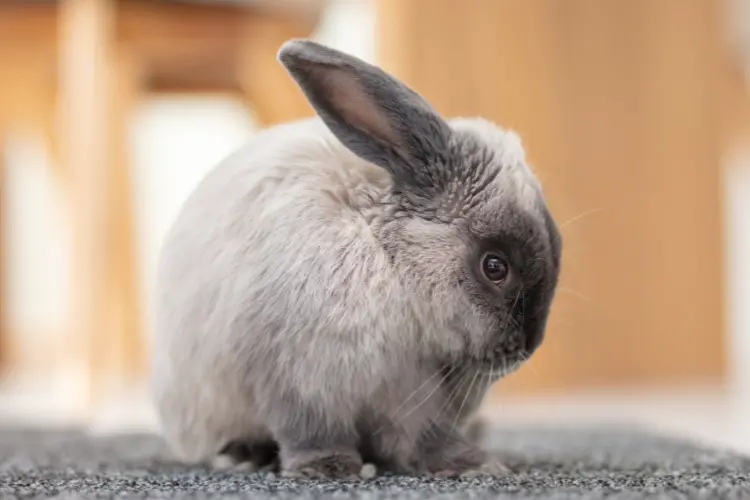
Preparing for Holland Lop Rabbit Emergencies
As a responsible Holland Lop rabbit owner, it’s essential to be prepared for potential emergencies. Here are some steps you can take to ensure you’re ready to respond effectively:
| Category | Details |
|---|---|
| Establish a Relationship with a Rabbit-Savvy Veterinarian | – Find a vet experienced with Holland Lop rabbits and small pets. – Build a relationship before emergencies for reliable support. |
| Keep a Medical Record | – Maintain a detailed medical history for your rabbit. – Include pre-existing conditions, past treatments, and current medications. |
| Assemble a Pet First Aid Kit | – Create a first aid kit for your rabbit with items like gauze, antiseptic wipes, syringes, and vet contact details. – Keep the kit easily accessible in case of emergencies. |
| Learn Basic First Aid Techniques | – Learn safe handling and basic first aid skills to stabilize your rabbit. – These skills can help until professional care is available. |
| Establish an Emergency Plan | – Discuss emergency plans with your vet, including after-hours contacts and nearby 24-hour animal hospitals. – Learn safe transport techniques for your rabbit during emergencies. |
| General Preparedness | – Take proactive steps to stay calm and effective in emergencies. – Increase the chances of positive outcomes with preparation and swift action. |
Conclusion
Holland Lop rabbits, with their endearing features and charming personalities, hold a special place in many pet owners’ hearts. However, their unique anatomy and delicate nature can also make them susceptible to a range of life-threatening emergencies. By understanding the common health issues, recognizing the signs and symptoms, and being prepared to respond quickly, you can help ensure the well-being of your Holland Lop rabbit.
Remember, when it comes to Holland Lop rabbit emergencies, time is of the essence. Stay vigilant, maintain a strong relationship with a rabbit-savvy veterinarian, and trust your instincts. With the right knowledge and preparedness, you can be a true advocate for your Holland Lop’s health and give them the best chance at a long, happy life

